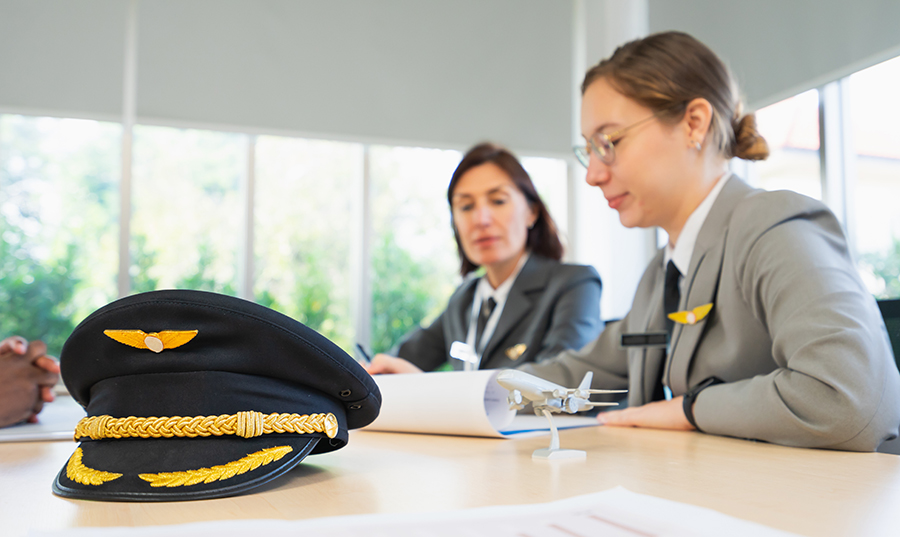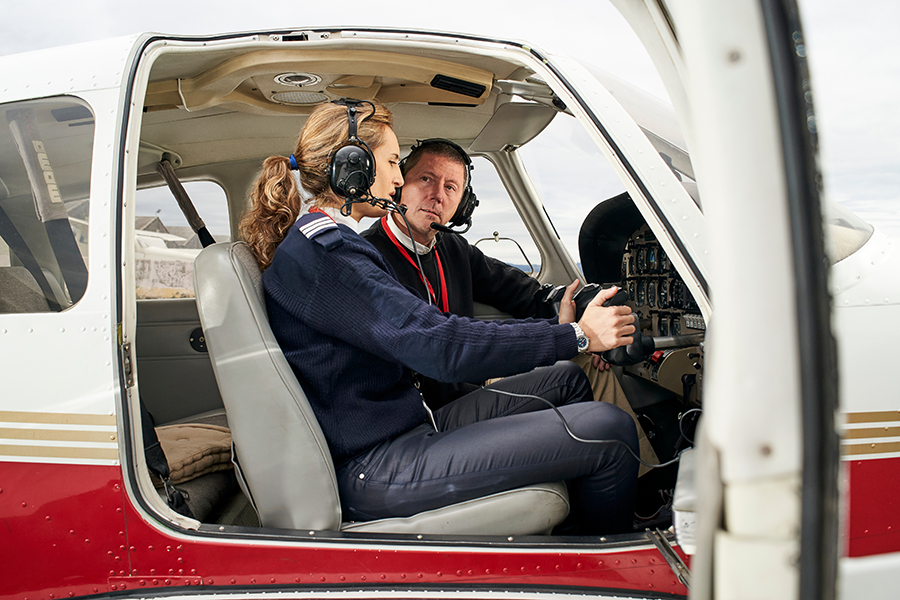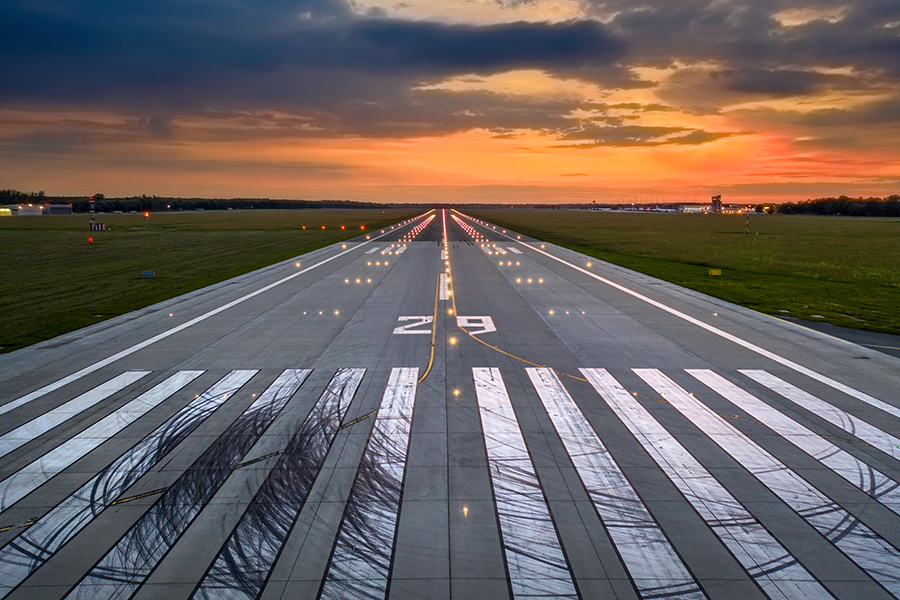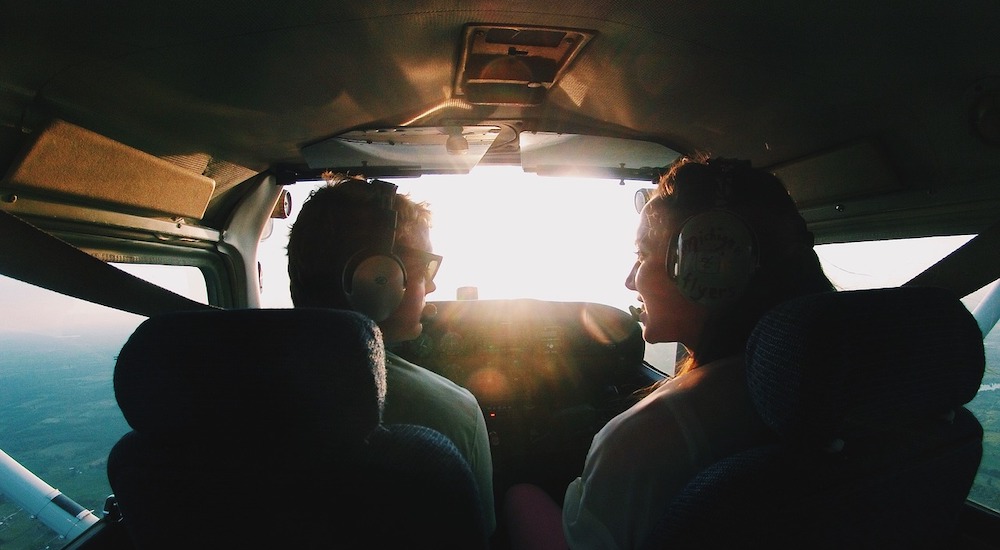So, you’ve got your eyes on the skies and your heart set on becoming a pilot.
You may be wondering if you need a college degree.
It’s a fair question, and one that many aspiring aviators grapple with, but the answer isn’t as straightforward as you might think. Let’s navigate through the clouds of confusion together and find out what it really takes to earn your wings.
Becoming a Pilot With (or Without) a Degree
Stepping into the cockpit requires more than just passion and a love for the skies. It involves extensive training, a good amount of knowledge, and a certain level of skill.
But does it require a college degree?
The simple answer is no.
To earn your pilot’s license from the Federal Aviation Administration (FAA), a degree is not a requirement. All you need is to be at least 17 years old, have good English language skills, pass a physical examination and flight test, and complete a specified amount of flight hours. Sounds doable, right?
Not so fast.
If your dream is to fly for a major airline, the story changes a bit. While a degree is not necessarily required, major airlines often prefer hiring pilots with a college degree. So having one might give you an edge over other candidates without a degree.
What’s the takeaway here? If you’re aspiring to be a private pilot or fly for a smaller airline, a degree may not be necessary. But if your goal is to fly for a major airline, you might want to consider the college route.
Remember, there’s no one-size-fits-all path to becoming a pilot. With or without a degree, your dreams of flying can take flight. It’s all about finding the right path for you.
Major Airlines and College Degrees

Becoming a pilot doesn’t require a college degree. But if your sights are set on landing a job with a major airline, having a degree could help you rise above the competition. Major airlines (think Delta, United, and American) often give preference to applicants who have a college degree.
Why’s that?
Major airlines see hundreds, if not thousands, of applications for their pilot positions. They need a way to narrow down the field, and a college degree is one factor they consider. A degree doesn’t just represent knowledge in a particular field. It shows commitment, discipline, and the ability to think critically – skills that are highly valued in the cockpit.
But don’t worry if college isn’t in your flight plan. Some major airlines also have pathway programs that allow pilots without a degree to earn their wings. Plus, regional and smaller airlines often hire pilots without a degree.
Some pilots choose to study part-time or remotely while flying for a smaller airline. That way, by the time they have enough experience to apply for the major airlines, they already have their degree!
So while a degree might not be a strict requirement for becoming a pilot, it could be your ticket to a job with a major airline. In the end, the choice is yours.
Does The Type of Degree Matter?
So, you’ve decided to go the college route on your journey to becoming a pilot. But does the type of degree you get matter?
Here’s the scoop: While some airlines might have preferences, generally, the field of study for your degree doesn’t matter as much as you might think.
Sure, an aviation or aeronautical science degree might seem like the obvious choice, and it can indeed be beneficial. These programs often combine flight training with coursework, providing you with a solid understanding of the aviation industry. But don’t let this limit your options.
Airlines value a diverse range of skills in their pilots. A degree in business can show your aptitude for decision-making. A degree in communication could highlight your ability to effectively relay critical information. Even a degree in a field like psychology or philosophy can show that you’re a critical thinker.
The key takeaway? Pursue a degree in a field that interests you. Not only will this make your college years more enjoyable, but it will also provide you with a solid backup plan should your aviation career plans hit turbulence.
Ultimately, the important part isn’t necessarily what you studied, but that you demonstrated the dedication and perseverance to earn a degree.
Flight Schools and Aviation Degrees

If you’re eager to blend your education with your passion for flying, universities that offer flight training with an aviation degree might be the perfect solution for you.
Traditional flight schools focus specifically on training you to become a pilot. They provide you with the necessary ground school classes and flight hours needed to earn various pilot licenses and ratings, like your Private Pilot License (PPL), Instrument Rating (IR), and Commercial Pilot License (CPL). Traditional flight schools are cheaper than their university counterparts, and you’ll finish your training faster, too.
On the other hand, if you’re looking for a more comprehensive approach, consider pursuing an aviation degree. Aviation degree programs, offered at many colleges and universities, combine traditional academic coursework with flight training. These programs don’t just teach you how to fly; they also dive into topics like human psychology, aircraft systems, meteorology, and aviation safety.
Getting an aviation degree can offer a more well-rounded educational experience. Plus, it can give you a competitive edge when it comes to landing jobs with major airlines. Remember, they often favor candidates with a degree.
However, these programs can be expensive, and the cost should definitely factor into your decision. Also, an aviation degree doesn’t provide the same backup that a degree in another field might.
In the end, whether you choose a traditional flight school or an aviation degree program depends on your personal goals, budget, and learning preferences. Both paths can lead to a rewarding career in the skies.
Summary
You don’t need a college degree to be a pilot. The FAA doesn’t require it, and many successful pilots have built their careers without one.
But if your dream is to fly for a major airline, a degree could give you an advantage over your competition. The type of degree usually isn’t as important as the fact that you’ve shown the determination to earn one.
Flight schools and aviation degree programs are both viable options, depending on your personal goals, budget, and how you prefer to learn. Flight schools offer a focused, practical approach, while aviation degrees provide a broader educational experience.
In the end, the route you choose is all about what works best for you. Keep your eyes on the skies, your hands steady on the controls, and remember: whether you choose to earn a degree or not, your dreams of flying can still take flight.
So strap in and enjoy the journey of becoming a pilot!




